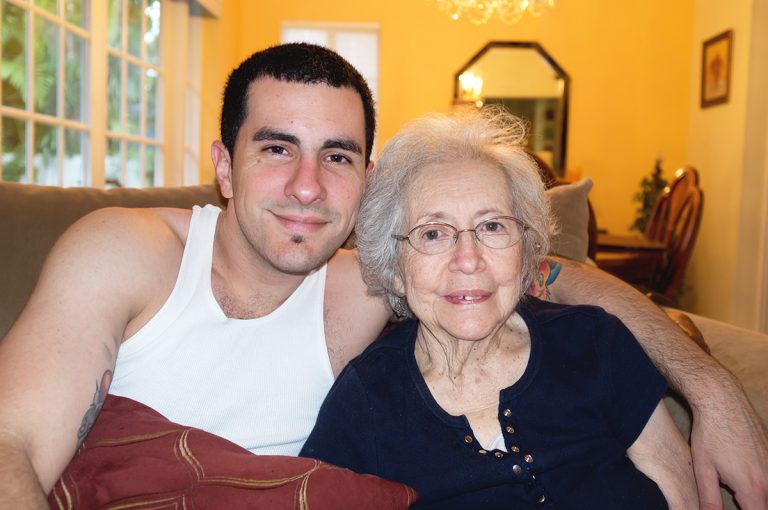This website uses cookies so that we can provide you with the best user experience possible. Cookie information is stored in your browser and performs functions such as recognising you when you return to our website and helping our team to understand which sections of the website you find most interesting and useful.

In today’s society, both young and old increasingly find themselves living in a bubble of like-minded and similar-aged peers. This is especially true of university students who leave home at 18 to live with people of the same age – who have quite often had similar life experiences.
Given this, the report that a Dutch nursing home has established a programme providing free rent to university students in exchange for 30 hours a month of their time “acting as neighbours” with their aged residents is unusual.
The programme has seen students in their early twenties sharing lives with residents in their eighties and nineties. As part of their volunteer agreement, the students also spend time teaching residents new skills – like how to email, use social media, Skype, and even graffiti art.
Reducing loneliness
The incentive behind Humanitas Deventer’s “exchange” programme is the research base that shows that reducing loneliness and social isolation improves well-being and extends life expectancy in the elderly.
And though research on the impact on students seems yet to be explored, from my own experience of running a similar project at the University of Exeter, I know that it is overwhelmingly positive – giving young people a sense of connection with older generations, and significantly increasing the likelihood that they will continue to volunteer after university.
Since 2011 student volunteers from the university’s Department of English and Film donate their time to bring conversation, literature, and friendship to the residents of over ten residential care homes across the city. And since the project’s inception it is estimated that around 250 active volunteers have reached over 500 elderly residents – at least half of whom have dementia.
Reading between the lines
The Care Homes Reading Project draws upon the natural skill set of its target volunteer community – which includes a love of reading and an understanding of the power of literature to impact lives positively.
Research shows reading poetry with dementia sufferers – many who learned poetry by heart when they were younger – brings comfort and reassurance through hearing and reciting familiar verses.

Young at heart. Image via Shutterstock
Residents regain a sense of themselves as “a whole person, past and present”, as one care home manager put it. And in one brilliant example, a 100-year-old resident found a shared play-reading session with one student volunteer revived long-buried leading-lady speeches once delivered when she was an actress.
Shared passions
Our experience in Exeter has shown that students can help to supplement the quality of care in homes by providing relief for overstretched staff. And residents typically respond with enthusiasm to the novelty of younger visitors and to the creativity students bring to their sessions.
Residents are also encouraged to be creative by writing their own poetry. And English students offer expertise in selecting and discussing appropriate literature, and show sensitivity to the emotional response that language can have.

Reading with dementia sufferers brings comfort and reassurance. Image via Shutterstock
Volunteer students look forward to their weekly visits. They find it is a space they can share poetry and stories – away from the demands of assessments. And many have said that it reminds them why they chose to study English literature in the first place.
Students also learn how past generations read the very same poems in surprisingly different ways. They see first hand how literature stays with us throughout life. And how the experience of shared reading helps to overcome the social and ideological disconnect between generations that plagues contemporary society.
Breaking boundaries
The moral health of a society is plainly visible in the way it treats its most vulnerable members, especially the aged. The government recently announced that universities will be required to demonstrate their commitment to enhancing social mobility by establishing or supporting schools, so why not also mobilise the resources universities offer to enhance opportunity and well-being at the other end of life’s spectrum?

Students could use spare time to help the elderly. Image via Shutterstock
Our reading project in care homes shows how both young and old can benefit from this type of arrangement. So just like the Dutch, it would be great if Universities in the UK could also look to reduce the cost of tuition fees or accommodation in exchange for meaningful social investment to get more people young and old spending time together.
![]() By Johanna Harris, Senior Lecturer in English, University of Exeter
By Johanna Harris, Senior Lecturer in English, University of Exeter
This article was originally published on The Conversation. Read the original article.
Image via Shutterstock
Liked this? Then you’ll love these…
NYU to test out lodging scheme pairing students to senior citizens with spare rooms








